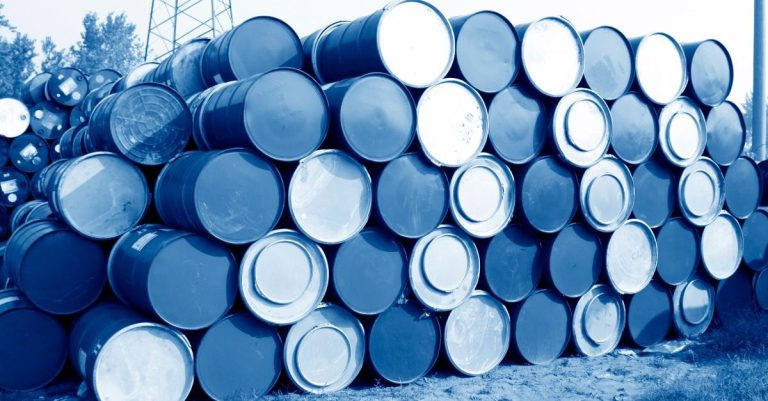Global oil markets are on edge as Goldman Sachs cautions that crude prices could skyrocket by $20 per barrel if Iranian oil production suffers from potential Israeli retaliation following heightened regional tensions.
US crude futures surged by 5% on Thursday, with continued upward momentum on Friday, driven by concerns that Israel might strike Iran’s oil sector.
This follows a recent missile attack by Tehran, which has intensified conflict in the region and raised alarms about potential disruptions to global oil supplies.
“If you were to see a sustained 1 million barrels per day drop in Iranian production, that could lead to a peak boost in oil prices next year of around $20 per barrel,” said Daan Struyven, co-head of global commodities research at Goldman Sachs, speaking on CNBC’s ‘Squawk Box Asia’.
This projection assumes that oil cartel OPEC+ does not step in to offset the loss with increased production.
OPEC+ could mitigate the surge
Struyven noted that if key OPEC+ members, such as Saudi Arabia and the UAE, decide to ramp up production, the potential spike in oil prices might be tempered.
In this scenario, the increase could be closer to $10 per barrel, reducing the severity of the impact.
Since the start of the Israel-Hamas conflict in October of last year, oil markets had seen limited disruptions.
However, that may be changing with Iran’s recent missile strike on Israel, which has triggered fears of broader supply shocks.
Iran’s oil exports and global impact
Iran plays a crucial role in the global oil market, producing nearly 4 million barrels of oil per day.
If Israel targets Iran’s oil infrastructure, as tensions escalate, the world could lose access to about 4% of its oil supply.
This scenario has raised significant concerns among market analysts.
Saul Kavonic, senior energy analyst at MST Marquee, warned that Iran’s Kharg Island, which handles 90% of the country’s crude exports, could be a potential target.
“The bigger concern is whether this leads to a wider conflict that impacts transit through the Strait of Hormuz,” he told CNBC.
Strait of Hormuz: a critical oil chokepoint
The Strait of Hormuz is a strategically vital waterway between Oman and Iran, where nearly 20% of the world’s oil passes each day.
Iran has previously threatened to block this crucial channel in response to attacks on its oil sector.
Any disruption to the flow of oil through this narrow strait would have far-reaching consequences for global energy markets.
President Joe Biden, when asked about potential US support for an Israeli strike on Iran’s oil facilities, responded ambiguously, leaving the door open for further escalation.
Potential for a full-scale conflict
According to Fitch Solutions’ BMI, a full-scale war in the region could push Brent crude prices above $100 per barrel, with disruptions in the Strait of Hormuz potentially driving prices to $150 per barrel or higher.
While the likelihood of such a war remains low, the risks of a miscalculation have grown, leaving the global oil market vulnerable to further shocks.
Though some believe OPEC+ could fill the gap in the event of Iranian production losses, much of the world’s spare capacity is concentrated in the Gulf region, which itself could be at risk if the conflict escalates further.
The post Oil prices could surge by $20 as tensions in Iran escalate, warns Goldman Sachs appeared first on Invezz

